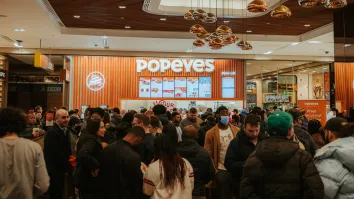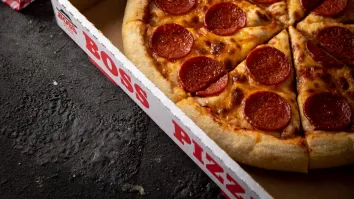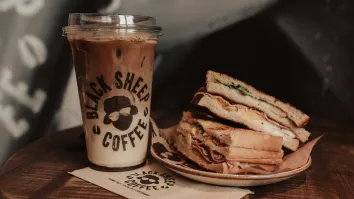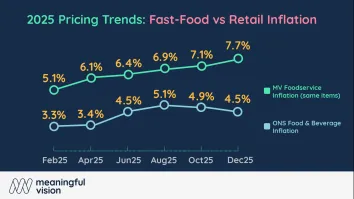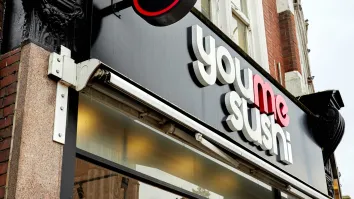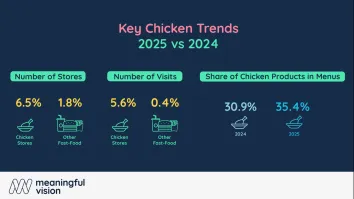
Could weight loss drugs disrupt UK’s foodservice industry?
Other industry headwinds like the cost-of-living crisis continues to change consumer behaviour.
As new weight loss drugs like GLP-1s gain popularity, a foodservice expert is sounding the alarm on how these treatments could upend traditional dining behaviours.
Almost one in four British consumers are already using or considering using these injections, according to Circana’s latest sentiment research. Ahead of his speaking session at the QSR Media UK Redcat Conference & Awards 2025, Seton Leung, Head of UK Foodservice at Circana, said that whilst the full impact in the UK is still unfolding, early trends from the US suggest potential headwinds for the QSR sector.
In this Q&A, Leung discusses how weight loss drugs could reshape consumer habits, why QSRs are entering the grocery space, and what economic pressures are top of mind for UK operators.
QSR Media: As a thought leader in the QSR space, what do you see as the most significant shifts happening in the industry right now?
Seton Leung: Many more clients this past year have been asking how weight loss injections, becoming so much more mainstream, will affect the industry and, in turn, their business. Almost a quarter of British consumers we’ve surveyed in a recent sentiment study by Circana have said that they’re either considering using GLP-1 or are already using it. We’ve seen some immediate adverse impact in the US Foodservice market once a consumer starts GLP-1, but it’s too early to see how it will impact the UK market, though we’re keeping an eye on its impact over the next few months.
What do you think are the most important innovations in the industry right now?
The blurring of lines between out-of-home and in-home food consumption is a major shift in the industry right now, and consequently, we’re seeing many QSR brands - not just here but globally - enter the grocery retail space by developing ready-to-eat foods for in-home consumption. Consumers are now choosing meals not just between brands but between experiences, creating opportunities for hybrid models and new types of food experiences. In some global markets where we also operate, we are seeing collabs between traditional food brands and non-food brands.
What challenges do you see are an immediate priority for the QSR industry?
It is tedious, but the fact remains that in the UK, the cost of living crisis and an individual’s purchasing power remain top-of-mind concerns. Retaining and attracting footfall will remain an immediate priority. We saw that the COL situation worsened in April, with data from the ONS stating that price inflation rose by 3.5% in the 12 months to April 2025, up from 2.6% in the 12 months to March. We also found from another recent study by Circana that 46% of British consumers are concerned about decisions made by the new US administration. 51% of those surveyed believe that the tariffs will subsequently increase restaurant prices in the UK; all of which point to the immediate priority for QSR operators need to look for innovative ways to drive loyalty, repeat visitation and ultimately attract and retain footfall.
What advice would you leave QSR brand leaders to navigate the current economic climate?
Play the long game. There will always be a desire for consumers to eat out and engage in that experience. Stay relevant – the consumer is ever more discerning, and looks for offers and wants real value (which doesn’t always mean low price as a matter of course).
According to a recent sentiment study conducted by Circana, almost 75% of consumers believe that restaurants should prioritise the quality of their food and ingredients above all other considerations as an important area to invest in. It is important not to skimp on the quality of food because ultimately, it will be this that sustains your business.
Hear more from Seton Leung, Head of UK Foodservice at Circana, at the upcoming QSR Media UK Redcat Conference & Awards 2025.


